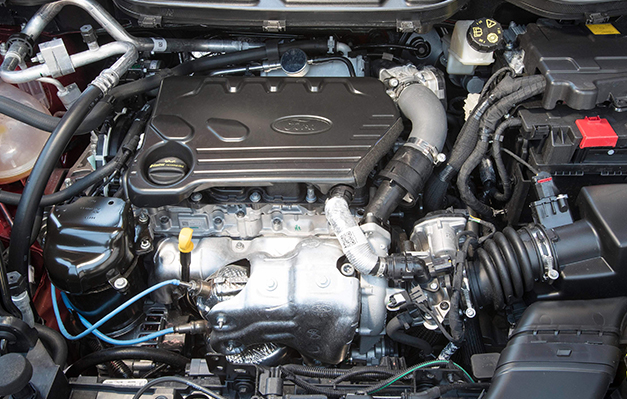

The longevity of a reconditioned Ford Engine plays a vital role in ensuring the value and reliability of your vehicle. Unlike a used engine, which retains its original wear and tear, a reconditioned engine undergoes a detailed restoration process that replaces damaged or worn-out components. This process not only extends its life but also enhances its overall performance. Compared to rebuilt or remanufactured engines, a reconditioned engine provides a balanced solution, offering reliability at a reasonable cost.
Understanding the differences in lifespan between reconditioned, used, rebuilt, and remanufactured engines is essential for making an informed decision. While used engines may come with an uncertain history, and remanufactured engines offer a factory-grade finish, reconditioned engines strike a perfect middle ground, providing a dependable and cost-effective alternative.
The lifespan of a reconditioned Ford Ecosport Engine depends on several factors, with maintenance being the most critical. Regular oil changes, timely servicing, and the use of high-quality parts significantly impact how long the engine will last. Driving conditions also play a major role; engines subjected to smooth driving and light loads tend to last longer than those exposed to aggressive driving or frequent towing.
The quality of the reconditioning process is another crucial factor. Engines reconditioned by experienced technicians using top-notch components and advanced techniques generally exhibit greater durability. Investing in proper upkeep and choosing a reliable reconditioning service are essential steps toward maximising the lifespan of your engine.
A reconditioned Ford Ecosport Engine undergoes an extensive overhaul where defective parts are repaired or replaced to restore its functionality. This process ensures a cost-effective and reliable solution for engine replacement. A rebuilt Ford Ecosport engine, on the other hand, focuses on repairing only the failed components, leaving other parts untouched if they appear functional, which might not guarantee long-term reliability.
Remanufactured engines stand out for their factory-grade restoration, involving complete disassembly, replacement of all worn components, and adherence to strict manufacturing standards. While remanufactured engines are the most dependable, they are also the most expensive. For those seeking a balance between cost and performance, reconditioned engines often provide the best value.
Proper installation is critical to the performance and longevity of a reconditioned Ford Ecosport Engine. The fitting process ensures that the engine integrates seamlessly with the vehicle’s systems, reducing the risk of operational issues. Skilled technicians perform essential checks and adjustments during installation to optimise functionality and prevent premature wear.
Poor installation can lead to misalignment, increased wear, and even engine failure. Choosing a reputable Ford Ecosport engine supply and fitting service guarantees that the engine operates at its best. Working with trusted providers ensures the job is done correctly, safeguarding your investment and enabling you to enjoy a reliable driving experience.
On average, a well-maintained reconditioned Ford Ecosport Engine can last between 80,000 and 120,000 miles or more. This lifespan largely depends on the quality of the reconditioning process and how well the engine is maintained post-installation. When compared to used engines, which may fail unpredictably, a reconditioned engine offers greater reliability and peace of mind.
While a new engine may last longer, the cost difference makes a reconditioned engine an attractive option for many Ford Ecosport owners. With proper care, these engines can deliver performance and longevity that rivals even a newly manufactured one, making them an excellent choice for long-term use.
Regular maintenance is essential to extend the lifespan of a reconditioned Ford Ecosport Engine. Basic upkeep, such as timely oil and filter changes, prevents contaminants from causing internal damage. Monitoring fluid levels, inspecting belts and hoses, and addressing minor issues promptly are additional steps to keep the engine running smoothly.
Driving habits also play a significant role in engine longevity. Avoiding aggressive driving, reducing idling time, and adhering to recommended service intervals are all vital practices. By committing to consistent maintenance, you can maximise the performance and lifespan of your reconditioned engine.
To ensure the longevity of a reconditioned Ford Ecosport Engine, it’s important to focus on proper maintenance, careful driving, and choosing a high-quality reconditioning service. Regular servicing, the use of premium replacement parts, and prompt attention to issues are key factors that protect your investment and enhance the engine’s reliability.
Collaborating with a trusted Ford Ecosport engine supply and fitting service ensures seamless installation and long-term performance. By combining diligent care with professional expertise, you can enjoy years of dependable operation from your reconditioned Ford Ecosport Engine.
